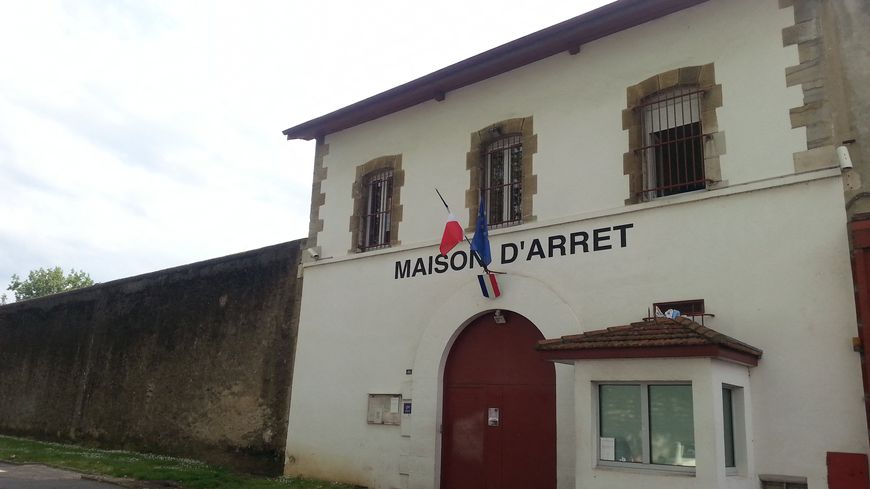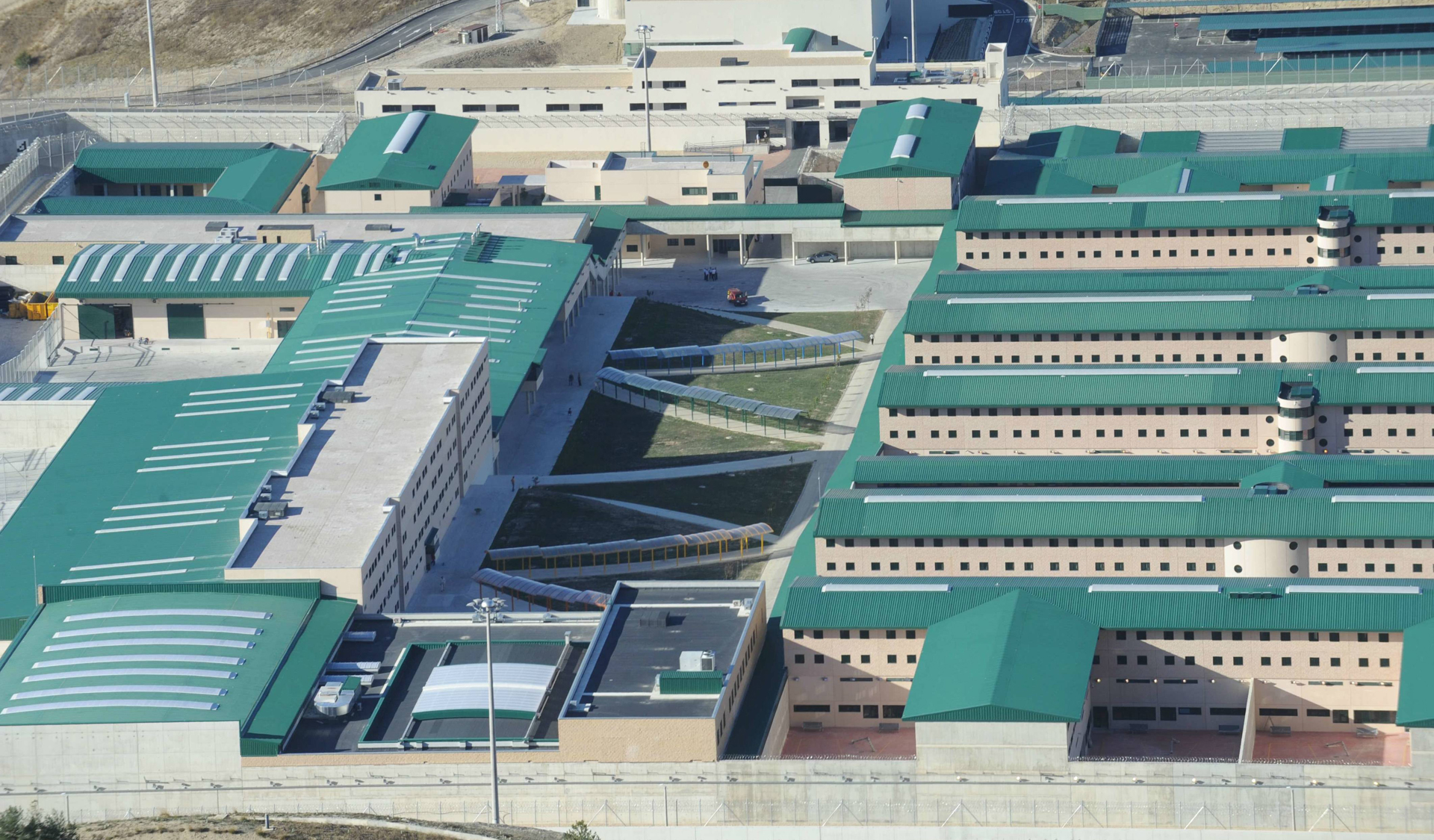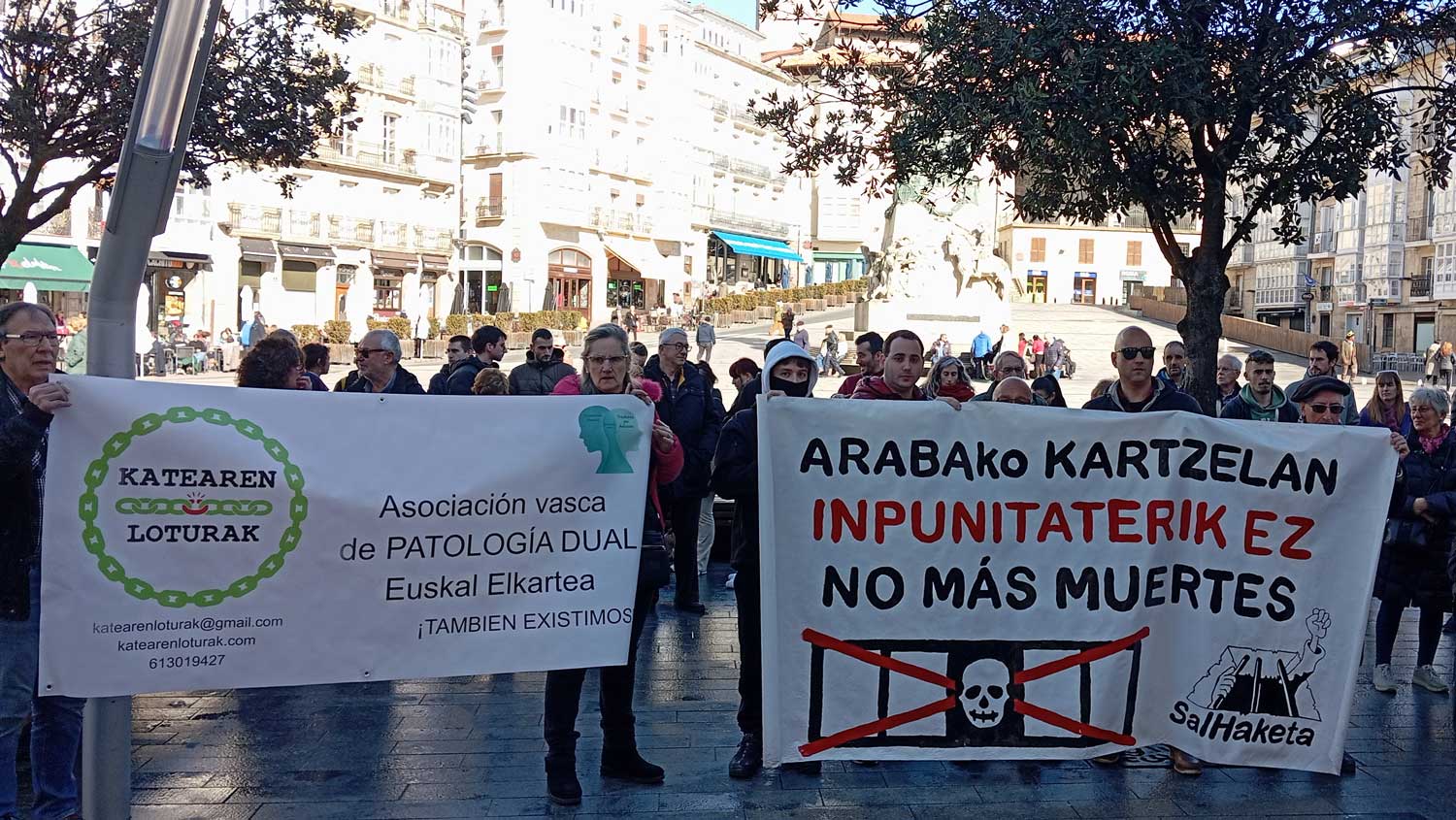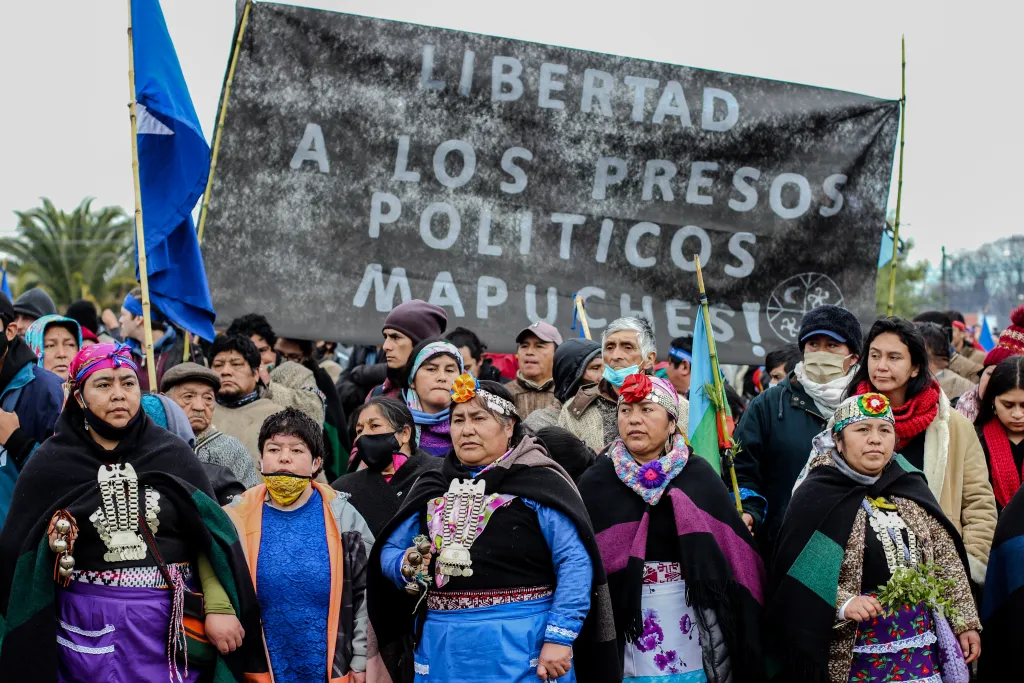Olatz Lasagabaster: "After 3 years of being with my daughter 24 hours a day, we've gone to see her for two hours in 9 months."
- Who can give the testimony of the prison better than the one in prison? In the 2715 ARGIA weekly, Jail in the COVID-19 era: The experiences of Basque prisoners in the first person, we publish a report. The experiences and reflections written to us by four Basque political prisoners are the essence of the report. But what can't be picked up in the report, and that's why we decided to publish the full letter of each prisoner on the web. Then the usurbildarra Olatz Lasagabaster Anza.

On 19 January, our daughter Xua, who was 3 years old, left the prison of Picassent (Valencia, Catalan Countries). By then, the duo Patxi Uranga and I already knew that they would bring us to Aranjuez (Madrid, Spain), as they had filtered that information to the press. They sold it as an approximation, although there are a few kilometers apart, and we came here in early February. As soon as we arrived, we realized that the living conditions would be much worse. They brought us here because I was pregnant and in this jail there is a module for mothers.
And shortly afterwards came the wave of COVID-19. On 7 March the module was quarantined, as one of the teachers of the nursery tested positive. The director came to tell us that we would be calm and that we would recover all communications after all. Time has taught us no, we have not recovered any of them: neither the intermodulars (made with the couples damned), nor the prisoners or the announcers. Moreover, in summer, intimacy was restored in front of each other, but not those of family members and those of cohabitation. We did have the inter-modules, but they interrupted us again on August 28, and since then we have only communications in the announcements with our family and friends. We have therefore been without a previous appointment for more than seven months. We know that in other prisons they have had the opportunity to retrieve communications, such as in Villena (Alicante, Catalan Countries). But in this jail, denial is total. Everybody, of course, but here especially. Getting anything is an odyssey. You can wait between two and three months for an instance to answer. Everything is no, or, if not, silence. It is disappointing.
"In this jail, denial is the great protagonist. Everybody, of course, but here especially. Getting anything is an odyssey."
Video calls were launched in spring to alleviate the shortage of communications. A certain frequency has been established in most prisons. Not here either. With those of the house (we always do them with the daughter) we have ever had – I have made a total of six since March –. And as for the intermodulars, they're about every two weeks, but recently we've been almost four weeks without meeting. There is no defined frequency or criterion. That is the situation we have at the moment.
In our case, it's what has led us to be very little with my daughter in nine months. On 27 February we had the family in front – the only one we have had in this jail – and Patxi has not been with her ever since. Maddi, our second daughter, was born in July and I then saw Xua. Half an hour in one day and ten minutes in the next. On the second day of the visit, they were told that due to the protocol established by COVID-19 the children had no access and were barely able to enter to greet us.
Xua was released from jail in January, and we're going to get out on the street in June next year. We were seventeen months before it came out and we knew it was going to be tough, but this wasn't going to come into our worst predictions. After spending 3 years with my daughter 24 hours a day, we've gone to see her for 9 months, an hour and a half or two hours. It's being very hard. For him and for us.
In any case, we know that this will end in a few months’ time and that all four of us will be at home together. However, many members have been watching their children once a month for years, years and years. Now this has come and we do not know whether it will be extended. Ours is being tough, because we have just been taken to Xua, but in that sense we are “privileged” because we will soon get out on the street. There are dozens of children and young people who don't know when they're going to hug their parents, when they're going to be able to play with them, or when they're going to be able to speak quietly. And that uncertainty, managing that feeling is really difficult, both for prey parents and young and young people who are at home.
The data that are being published these days indicate that this is still going to last a long time, and I think we will have to continue to live hard months here inside.
"They want every module to be a bubble, but the three of us here have to go to the next module to call us by phone, because they say that in the cockpit here you can't install the intervention."
On 28 August we were cut off from cross-sectional visits because some prisoners tested positive. Since then, the security deputy director has interrupted the movements between the modules, arguing that what he wants is for each module to be a bubble. However, there have been changes in the modules. But no communication. It doesn't make sense, because once those positives have been quarantined and concluded, the bug can't get into prison but through officials. But they don't care, and they have a perfect excuse to reduce everything now. There are officials who walk without masks, the priest has entered the module twice to say mass... We can give a lot of examples. But at the same time, our children cannot be with the father who lives just a few meters away.
Another example that has neither feet nor heads: they want each module to be a bubble, but the three members we are here have to go phone to the next module, because they say that in the cockpit here you cannot set the intervention. On more than one occasion we have asked them to call us from here, but they say no and every day we go to the next module. That's all in this jail. Horrible! And it is clear that if those who come from the street strictly complied with the measures, there would be no problem, there would be no risk of contacts between modules.
This is our picture. I don't know if what I've written will serve you at least to make some mention, isn't it? And to make a general picture. I'm not going to go too far into the examples, because all of this is worth writing an encyclopedia. If you need something else, do we say it and will we?
In Aranjuez, 23 October
*Olatz Lasagabaster Anza (Usurbil, Gipuzkoa) The man was arrested by the National Police in 2009 for alleged homicide crimes. The National High Court sentenced him to 12 years in prison for possession of explosives and membership of ETA. He reported having been tortured during the period of incommunicado detention. He will serve his sentence in June 2021. Lasagabaster is the mother of two daughters, Xua and Maddi, the father is a Basque political prisoner Patxi Uranga. In early November 2020, the third grade was approved and both were transferred to Martutene, where they remained on the street on weekdays. Lasagabaster also sleeps out of prison, using the electronic control bracelet, as in Martutene there are no modules for mothers, Maddi was born in the summer of 2020.
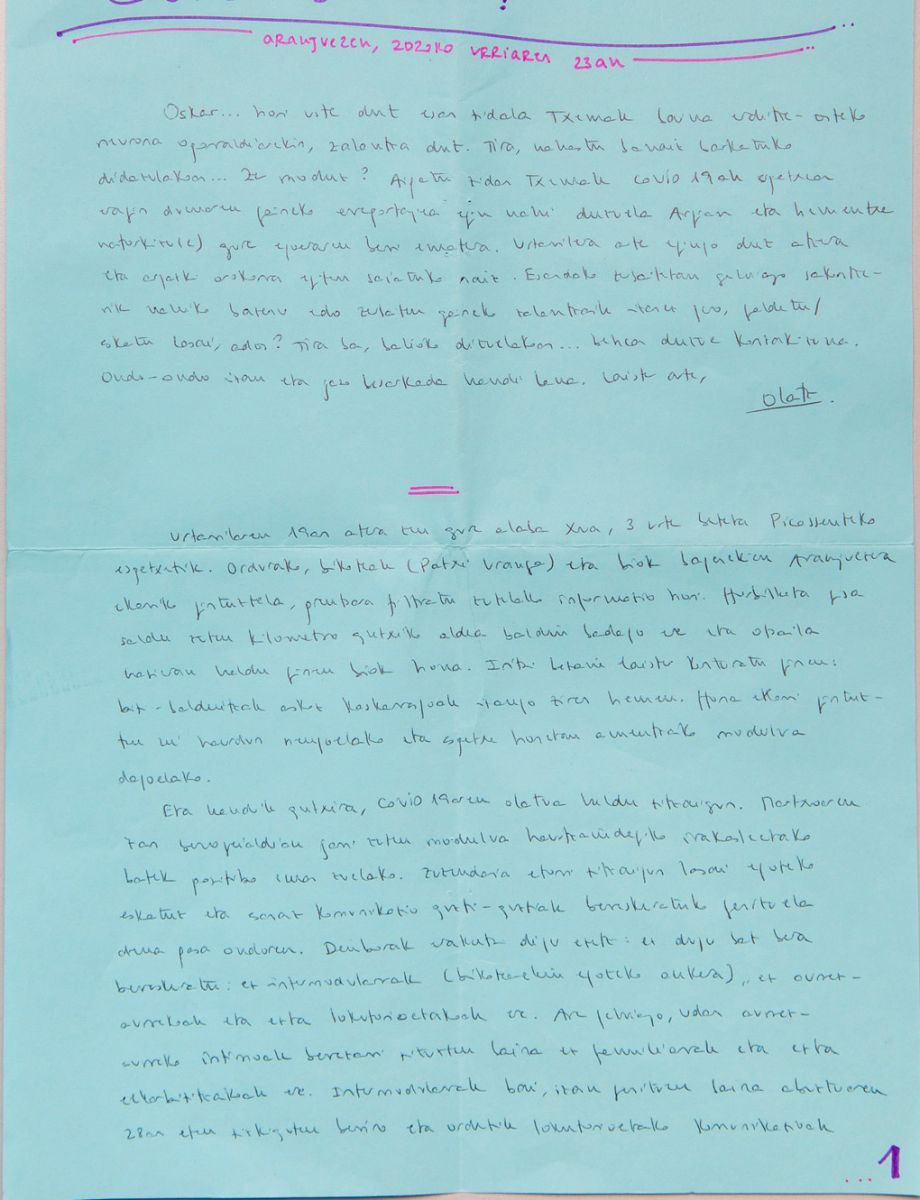
Alarma jo du, beste urte batez, OIP Presondegien Nazioarteko Behatokiak. Abenduaren lehenean marka berri bat hautsi zen frantses estatuan, 80.792 pertsona atxiloturekin. Espetxe-administrazioaren aitzinikuspenen arabera, gainera, 86.000 baino gehiago izan litezke 2027an egungo... [+]








